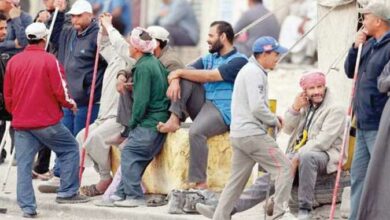In the first round of the 2012 presidential election, more than 39 percent of Egyptians voted for candidates representing neither the Muslim Brotherhood nor former President Hosni Mubarak's regime. The combined vote of Hamdeen Sabbahi and Abdel Moneim Abouel Fotouh, the biggest winners in this category, together with those of leftist candidates Khaled Ali and Abul Ezz al-Hariry, is substantially more than those who voted for Mohamed Morsy or for both Ahmed Shafiq and Amr Moussa combined. Some have argued that this sector of the electorate comprises a “third bloc” — a political force representing the “revolutionary” alternative to the game of “Islamists vs. the Mubarak security apparatus” that paralyzed Egyptian politics for decades.
These voters oppose both political Islam and the “deep state” which maintains the structure of the Mubarak regime. But, they do not automatically constitute a forward-looking political alternative with a common program. In the best of circumstances, it would have been difficult to forge such a program in the less than a year and a half since the fall of Hosni Mubarak.
The Supreme Council of the Armed Forces’ mismanagement of the post-Mubarak transition made this even more difficult. Like the Mubarak regime, the SCAF incited sectarian tensions. Electing the first Parliament (now ruled unconstitutional) by a combination of party lists and individual candidacies favored established, previously organized forces. Attempting to elect a parliament and a president before writing a new constitution postponed the most important political debates.
But not all the obstacles to building a united, forward-looking political force were due to mismanagement of the transitional process. After 60 years of autocracy, many Egyptians are unfamiliar with ways of discussing politics that supersede the limits of the “Islamists vs. security apparatus” framework. Sabbahi and Abouel Fotouh have been political activists since the 1970s. They have had enough time to formulate some serious ideas about Egypt’s problems. But many of their statements have been vague or repeated stale, out-of-date formulas.
Many Nasserists and leftists cling to what they imagine are immutable principles (al-thawabit) and resist opening the political field to new ideas. Re-nationalizing recently privatized enterprises, for example, may address some egregious cases of corruption and abuse of workers. But this alone will not increase capital investment, productivity, and competitiveness in industry or provide secure jobs at a living wage for working people and young graduates, or overhaul the dysfunctional educational system. These are the most urgent problems Egypt faces. Detailed proposals to address these issues were not centerpieces of the campaigns of any of the most popular presidential candidates.
These candidates also failed to address exactly how respect for Islam would be harmonized with liberal principles. How would a democratic Islamic outlook ensure individual rights — freedom to worship, not worship or convert, as well as freedom of speech, press, expression and scholarship? Is there an Islamic program for guaranteeing and promoting women’s right to fully participate in all aspects of society on an equal basis with men?
Many opponents of the Mubarak regime had a great deal to say about foreign policy issues such as the alliance with the United States and Israel and the 2003 invasion of Iraq. But they rarely spoke frankly about how to address the regional and international constraints Egypt faces. Does an anti-imperialist foreign policy in the 21st century mean the same thing it did in the 1950s and 1960s?
While foreign policy is not unimportant, it was not at the top of the agenda of the millions of workers who engaged in strikes or other protest actions during the decade and a half before Mubarak’s ouster. Intellectuals belatedly discovered the workers’ movement after the December 2006 strike at the Ghazl al-Mahalla textile factory, and Islamists were largely absent. Although a few heroic intellectuals devoted themselves to workers’ issues, there was no concerted campaign to link up with the labor movement. This would have required intellectuals to approach workers with respect and humility and to ask for workers’ opinions before offering their own. It would have required returning again and again and keeping in touch even when nothing dramatic was happening.
A successful third bloc of democratic Islamists, secular liberals, and leftists would need to address such issues by inventing a new language and style of politics that awakens Egypt from the nightmare of the past that weighs down on the brains of the living.
Joel Beinin is Donald J. McLachlan Professor of History at Stanford University. From 2006 to 2008 he was director of Middle East Studies at The American University in Cairo.




